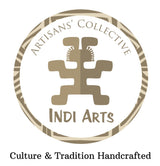The True Cost is a documentary that discusses the impact of fast fashion. It outlines the consequences of an industry that builds its profits by quickly getting cheap products into the hands of its consumers without concern about the human or environmental impacts.
Merriam-Webster defines fast fashion as: “An approach to the design, creation, and marketing of clothing fashions that emphasizes making fashion trends quickly and cheaply available to consumers”. Essentially, selling the right product, at the right price, in the right spot, results in a no questions asked sale. If manufacturers keep making money without accountability, we prove their point. When a first world customer buys cheap things that flatter for a season, they are drawn into a cycle that consumes and disposes at a rate that isn’t sustainable or beneficial.
The idea of buying happiness is fed and reinforced to us from a young age, taking advantage of our needs, insecurities and our desire to fit in. On a larger scale this ability to consume is passed off as status, it gives a false sense of wealth that erodes the ability to make significant improvements in quality of life. This consumer/product dynamic has always existed but with the increased connectivity, our ability to advertise, produce and ship has fueled a need and created mass wealth for a limited few with significant human and environmental costs. The discrepancy of what we need and what we own in is typically disproportionate. For example, the average American throws away 81 pounds a year of clothing which amounts to 111 million tons (reference cited below), most of which is non-biodegradable and will sit in landfills releasing harmful gases into the air.
We’ve been disconnected from the production process and its makers, which makes the items more appealing at the cost they are offered. The right price and the product is purchased without question and little hesitation. If we ask the questions, we can shift purchasing habits away from mindless consumerism.
1) Do I need this?
2) How was it made?
3) Who made it?
4) How long will this last me?
5) What will become of this?
6) How I will use it?
By informing consumers of the true cost of their choices and encouraging them to ask themselves simple questions about their purchases, we can shape the world with our economic votes. If we work as a group, we can acknowledge and clearly say: “No, I’m sorry, it’s not acceptable that someone dies in the course of the day to make this.” We can let go of old ways of thinking and address the true cost of what we support with our time, energy and money.
At Indiarts Collective, we aim to create opportunities for South American artisans to earn income and to improve life in their communities. We support this by guaranteeing that our artisans are treated and paid fairly, by working with small businesses and independent artisans and by doing direct trade with the products makers as much as possible. Further, we assure that the quality of the goods we carry is good so that it will have a long life cycle.
Citations
1) https://truecostmovie.com/
2) https://www.merriam-webster.com/dictionary/fast%20fashion
4) Wilson, Gabrielle (May 29, 2015). "Must-Watch: 'The True Cost' Shines A Light On The Human Price Of Your Bargain Shopping". MTV. Viacom. Archived from the original on February 5, 2017. Retrieved January 5, 2016.'
